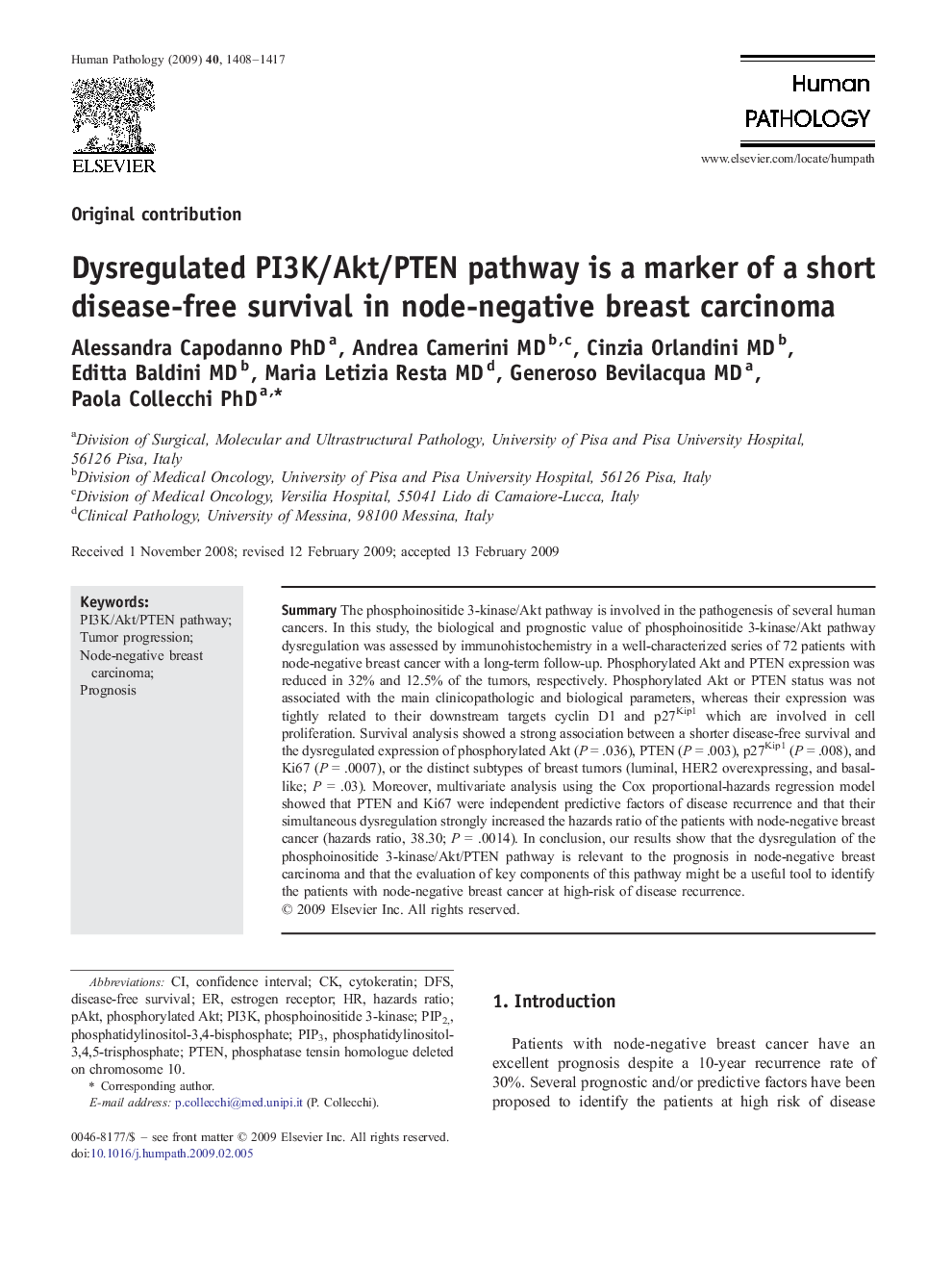| Article ID | Journal | Published Year | Pages | File Type |
|---|---|---|---|---|
| 4134656 | Human Pathology | 2009 | 10 Pages |
SummaryThe phosphoinositide 3-kinase/Akt pathway is involved in the pathogenesis of several human cancers. In this study, the biological and prognostic value of phosphoinositide 3-kinase/Akt pathway dysregulation was assessed by immunohistochemistry in a well-characterized series of 72 patients with node-negative breast cancer with a long-term follow-up. Phosphorylated Akt and PTEN expression was reduced in 32% and 12.5% of the tumors, respectively. Phosphorylated Akt or PTEN status was not associated with the main clinicopathologic and biological parameters, whereas their expression was tightly related to their downstream targets cyclin D1 and p27Kip1 which are involved in cell proliferation. Survival analysis showed a strong association between a shorter disease-free survival and the dysregulated expression of phosphorylated Akt (P = .036), PTEN (P = .003), p27Kip1 (P = .008), and Ki67 (P = .0007), or the distinct subtypes of breast tumors (luminal, HER2 overexpressing, and basal-like; P = .03). Moreover, multivariate analysis using the Cox proportional-hazards regression model showed that PTEN and Ki67 were independent predictive factors of disease recurrence and that their simultaneous dysregulation strongly increased the hazards ratio of the patients with node-negative breast cancer (hazards ratio, 38.30; P = .0014). In conclusion, our results show that the dysregulation of the phosphoinositide 3-kinase/Akt/PTEN pathway is relevant to the prognosis in node-negative breast carcinoma and that the evaluation of key components of this pathway might be a useful tool to identify the patients with node-negative breast cancer at high-risk of disease recurrence.
